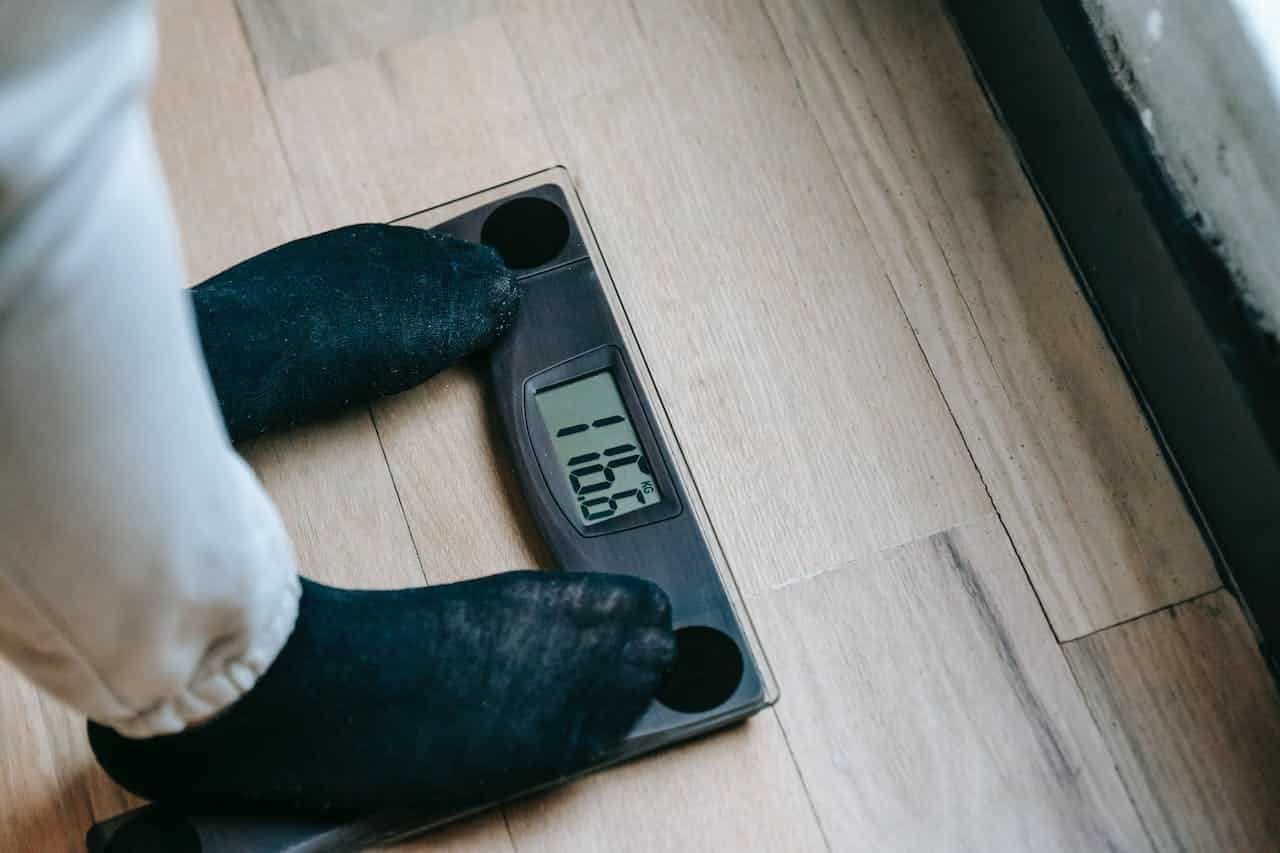How Long Do Bathroom Scales Last? Bathroom scales can last up to 5-10 years with proper care and maintenance. Bathroom scales, an essential tool for tracking weight and maintaining a healthy lifestyle, have a lifespan of around 5-10 years when treated with care.
These devices are designed to withstand regular use and are built with durable materials to ensure long-term functionality. However, several factors can impact a scale’s longevity, such as the quality of construction, frequency of use, and user maintenance. Understanding how to prolong the lifespan of your bathroom scale can make a significant difference in its overall durability. Let’s read the article about How Long Do Bathroom Scales Last? in the below.
We will explore the factors that affect the lifespan of bathroom scales and provide tips on how to extend their longevity.
Page Contents
ToggleCommon Reasons For Scale Malfunction
Do you know How Long Do Bathroom Scales Last? Bathroom scales may malfunction due to various reasons, including inaccurate readings, low battery, uneven or hard surfaces, or excessive weight capacity. The lifespan of a bathroom scale can vary depending on its quality and usage but typically ranges from 3 to 5 years.
Bathroom scales are essential tools for tracking our weight, but like any other electronic device, they can experience malfunctions over time. Understanding the common reasons behind scale malfunction can help you troubleshoot issues and potentially extend the lifespan of your scale.
Battery Issues
Battery drainage is one of the most common problems with bathroom scales. Here are some possible causes and solutions to troubleshoot battery-related scale malfunctions:
- Low battery: If your scale is not turning on or displaying inaccurate measurements, it might be due to low battery power. Replace the batteries with new ones to see if the issue resolves.
- Battery corrosion: Over time, batteries can leak acid, resulting in corrosion. If you notice rust or white residue on the battery compartment, clean it carefully using a cotton swab and vinegar. Ensure the battery contacts are clean before inserting fresh batteries.
- Incorrect battery placement: Sometimes, incorrect battery placement can cause the scale to malfunction. Double-check the battery orientation, following the instructions provided by the manufacturer.
Sensor Problems
Sensors play a crucial role in accurately measuring weight on bathroom scales. When these sensors encounter issues, it can lead to inaccurate readings. Here are some common sensor problems and potential solutions:
- Sensor misalignment: If your scale consistently displays inconsistent or incorrect readings, the sensors might be misaligned. Carefully inspect the scale’s underside for any dirt, debris, or obstructions that may interfere with proper sensor function. Clean the sensors and ensure they are positioned correctly.
- Sensor sensitivity: Some scales may be sensitive to uneven surfaces. Placing the scale on an even, flat surface can help ensure accurate readings. Avoid using the scale on soft surfaces like carpets, as they may affect sensor accuracy.
Accuracy Decline Over Time
Even with proper care and maintenance, bathroom scales may encounter accuracy issues as they age. Here are some reasons for accuracy decline and potential solutions:
- Wear and tear: Continuous use can lead to wear and tear of internal components, resulting in inaccuracies. Regularly clean the scale and ensure it remains in a stable environment to minimize potential damage.
- Calibration drift: Over time, scales may require calibration to maintain accuracy. Consult the manufacturer’s instructions to determine if your scale is adjustable and learn how to recalibrate it if necessary.
Remember, troubleshooting and resolving scale malfunctions can help extend the lifespan of your bathroom scale. By addressing battery issues, sensor problems, and accuracy decline, you can ensure that your scale remains a reliable tool for tracking your weight effectively.
Signs Your Bathroom Scale Is Failing
Does your bathroom scale seem unreliable lately? Wondering how long these scales typically last? Discover signs that indicate your bathroom scale may be failing and learn how long they are expected to function properly.
If you’re wondering how long your bathroom scale will last, it’s essential to keep an eye out for signs that it may be failing. Over time, scales can experience issues that may affect their accuracy and functionality. Below are some key indicators that your bathroom scale may need to be replaced:
Inconsistent Readings
- Your scale shows different weights each time you step on it: Inconsistent readings suggest that the internal mechanisms of your scale may be faulty or worn out.
- Fluctuating measurements without any change in your weight: This could indicate issues with the sensors or the digital display of your scale.
- Scale displays inaccurate weight even on a level surface: If you notice significant variations in weight when using your scale on a flat, stable surface, it may be time to consider a replacement.
Display Malfunctions
- Flickering or rapidly changing numbers on the display: This may signify an electrical problem or a worn-out display screen.
- Blank or distorted display: If your scale’s digital screen is not showing any numbers or the digits are illegible, it likely indicates a display malfunction.
- Unresponsive buttons or difficulty navigating the scale’s settings: Functional issues with the buttons can indicate internal problems and hinder your ability to use and customize your scale.
Unresponsiveness
- Scale fails to turn on or respond to user inputs: If your scale is unresponsive even after replacing the batteries, there could be internal circuitry problems or a faulty power button.
- Delayed or no response when stepping on the scale: When your scale takes too long to register your weight or doesn’t respond at all, it may be nearing the end of its lifespan.
Recognizing the signs that your bathroom scale is failing is crucial for maintaining accurate weight measurements. If you experience any of these issues, it might be time to consider purchasing a new scale to ensure you can continue monitoring your health and fitness with confidence.
Remember, the investment in a reliable bathroom scale is worthwhile for accurate and consistent readings.
Extending The Lifespan Of Your Bathroom Scale

Extend the lifespan of your bathroom scale by following these simple tips. Keep it clean regularly, store it in a dry place, and avoid placing heavy items on it.
Whether you rely on your bathroom scale daily or only occasionally, it’s important to ensure that it lasts as long as possible. With proper maintenance and care, you can extend the lifespan of your bathroom scale, saving you both time and money in the long run.
In this section, we will discuss some essential tips for battery maintenance, cleaning and maintenance practices, as well as proper handling and storage of your bathroom scale.
Battery Maintenance Tips
- Regularly check the battery: Check the battery status of your bathroom scale at least once a month to ensure it has enough power. Low battery levels may affect the scale’s accuracy.
- Replace the battery as needed: When the battery is running low, replace it promptly to avoid any discrepancies in the scale’s readings.
- Remove the battery when not in use: If you anticipate not using the scale for an extended period, remove the battery to prevent leakage or corrosion that could damage the scale’s internal components.
- Avoid using rechargeable batteries: Rechargeable batteries may not provide the same level of energy as regular ones, affecting the scale’s performance.
Cleaning And Maintenance Practices
- Regular cleaning: Keep your bathroom scale clean by wiping it down regularly with a soft, damp cloth. This will help remove any dust, dirt, or other particles that could interfere with its functionality.
- Avoid harsh chemicals: Use mild soap or a non-abrasive cleaning solution when cleaning the surface of the scale. Avoid using harsh chemicals that may damage the scale’s materials or affect its readings.
- Dry thoroughly: After cleaning, make sure to dry the scale thoroughly to prevent any moisture from seeping into its internal components.
- Protect from water exposure: To prevent damage, avoid exposing your bathroom scale to water or excessive moisture. Moisture can affect the scale’s circuitry and reduce its lifespan.
Proper Handling And Storage
- Avoid excessive weight: To prevent strain or damage to the scale’s mechanism, avoid weighing items that exceed its maximum weight capacity.
- Place on a flat surface: Always place your bathroom scale on a flat and stable surface to ensure accurate and consistent readings.
- Store in a dry and temperate location: When not in use, store your bathroom scale in a dry and temperate location to avoid extreme temperatures or humidity that could affect its performance.
- Handle with care: Be gentle when handling your bathroom scale. Dropping or mishandling it can lead to internal damage that may compromise its accuracy.
By following these battery maintenance tips, cleaning and maintenance practices, as well as proper handling and storage techniques, you can help extend the lifespan of your bathroom scale. Taking care of your scale not only ensures accurate readings but also saves you from the hassle of frequent replacements.
Recommended Replacement Periods
Wondering how long your bathroom scale will last? Recommended replacement periods can vary, but on average, bathroom scales typically have a lifespan of 5-10 years. It’s always a good idea to check for accuracy and functionality regularly to ensure accurate readings.
Average Lifespan Of Bathroom Scales
Bathroom scales have become an essential tool for monitoring our weight and maintaining our overall health. However, just like any other gadget, they have a limited lifespan. Understanding the average lifespan of bathroom scales can help you determine when it’s time to replace yours.
Here are some key points to consider:
- The average lifespan of a bathroom scale is typically around 5-7 years.
- However, the actual lifespan can vary depending on factors such as the quality of the scale, frequency of use, and maintenance.
- Higher-quality scales with more durable materials and advanced technology tend to last longer than cheaper alternatives.
- Digital scales, which have become increasingly popular, often have a longer lifespan compared to mechanical analog scales.
Frequency Of Use And Replacement
The frequency of use plays a significant role in determining when you should consider replacing your bathroom scale. Here are some guidelines to help you understand when it’s time for an upgrade:
- If you use your scale daily or multiple times a week, it may wear out faster due to the constant pressure and strain.
- For such frequent users, consider replacing your scale every 3-5 years to ensure accurate and reliable measurements.
- On the other hand, if you only use your scale occasionally or once a week, it may last longer, extending its lifespan towards the 5-7 year range.
Signs It’s Time To Upgrade
Knowing the signs that indicate it’s time to upgrade your bathroom scale can prevent inaccurate measurements and frustration. Keep an eye out for the following signs:
- Fluctuating readings: If your scale consistently shows different weights for the same individual, it may be time for a new one.
- Unresponsive buttons or glitches: A malfunctioning scale that doesn’t respond properly or displays errors could be nearing the end of its lifespan.
- Outdated technology: If your scale lacks modern features like body fat analysis or Bluetooth connectivity, upgrading to a newer model can provide more comprehensive health insights.
- Visual wear and tear: Cracks, excessive scratches, or wobbling may indicate that your scale is no longer reliable.
Remember, regularly calibrating and maintaining your bathroom scale can help extend its lifespan. However, when it comes to accurate and consistent weight monitoring, upgrading to a new scale within the recommended replacement periods is a wise choice.
Factors Affecting Scale Lifespan On How Long Do Bathroom Scales Last

Factors affecting the lifespan of bathroom scales vary, including regular maintenance, quality of materials, and frequency of use. Proper care and attention to these factors can help ensure a longer-lasting scale.
When it comes to bathroom scales, longevity is an important factor to consider. After all, no one wants to invest in a scale that will only last a few months. The lifespan of a bathroom scale can be influenced by several factors.
Let’s delve into them below:
Scale Build Quality
The build quality of a bathroom scale plays a significant role in determining its lifespan. Here are some key factors to consider:
- Materials: High-quality scales are typically constructed using durable materials such as tempered glass or stainless steel, which help withstand regular use and can last for years.
- Construction: Pay attention to the overall construction of the scale. Sturdy construction, well-fitted components, and a robust design are indicators of a longer lifespan.
- Design Features: The presence of features like reinforced corners, non-slip pads, and impact-resistant components can contribute to the durability and lifespan of a scale.
User Weight And Frequency Of Use
The weight of the user and the frequency of scale usage are important contributors to how long a bathroom scale will last. Consider the following factors:
- Weight Capacity: Ensure that the maximum weight capacity of the scale matches or exceeds the heaviest user’s weight. Overloading a scale repeatedly with excessive weight can strain internal components and shorten its lifespan.
- Frequency of Use: The more a scale is used, the quicker it may wear out. High-frequency users might want to consider investing in a more durable scale, specifically designed for heavy use.
Environmental Conditions
The environment in which a bathroom scale is placed can impact its longevity. Here are some environmental factors to be aware of:
- Moisture: Excessive moisture can lead to rusting and deterioration of internal components. To ensure a longer lifespan, avoid placing the scale in areas prone to high moisture levels, such as near showers or sinks.
- Temperature: Extreme temperature fluctuations may affect the accuracy and performance of the scale. It is advisable to avoid exposing the scale to direct sunlight or extreme heat/cold.
- Storage: Proper storage can prolong a scale’s lifespan. When not in use, protect the scale from dust, sunlight, and any potential damage by storing it in a dry and safe location.
Remember, investing in a high-quality bathroom scale, considering user weight and frequency of use, and being mindful of environmental conditions can significantly impact the lifespan of your scale. By taking these factors into consideration, you can make a well-informed decision and enjoy a reliable and long-lasting bathroom scale.
Choosing A Durable And Long-Lasting Bathroom Scales
Looking for a How Long Do Bathroom Scales Last? Discover how long bathroom scales typically last and make an informed purchase for your needs.
When it comes to choosing a bathroom scale, durability and longevity are key factors to consider. No one wants to invest in a scale that will break or fail after just a few uses. To ensure you make an informed decision, let’s take a look at some important aspects to consider when selecting a durable and long-lasting bathroom scale:
Materials And Construction
- Stainless steel: Opt for a bathroom scale made from stainless steel, as it is known for its durability and resistance to corrosion. Stainless steel scales are less likely to rust or deteriorate over time.
- Tempered glass: Look for scales with a tempered glass platform, as this type of glass is stronger and less prone to cracks or shattering. It provides stability and can withstand heavier weight without compromising its integrity.
- Reinforced internal components: A well-constructed bathroom scale will have reinforced internal components such as high-quality load cells and sensors. These components contribute to the scale’s accuracy and longevity.
Brand Reputation And Reviews
- Research reputable brands: Start by researching and choosing brands known for manufacturing high-quality bathroom scales. A reputable brand often indicates that the company stands behind its product and values customer satisfaction.
- Read customer reviews: Transparency is essential when making a purchase, so take the time to read through customer reviews. Look for feedback on the scale’s durability and longevity to help you gauge its reliability.
Warranty And Customer Support
- Warranty coverage: Look for scales that come with a warranty. A good warranty, preferably for at least a year or longer, indicates that the manufacturer has confidence in the product’s durability and is willing to rectify any issues that may arise.
- Customer support: Consider the level of customer support provided by the manufacturer. A company that offers responsive and helpful customer support can make the warranty claim or troubleshooting process smoother if you encounter any issues with your scale.
Remember to consider all these factors before making your final decision on a bathroom scale. By selecting a scale made from durable materials, choosing a reputable brand, and ensuring warranty coverage and customer support, you can increase the chances of obtaining a scale that will last for years to come.
Proper Placement And Usage
Bathroom scales can last for several years when placed properly and used correctly, providing accurate weight measurements for an extended period.
When it comes to bathroom scales, proper placement and usage are essential for their longevity and accuracy. By following a few simple guidelines, you can help ensure that your bathroom scale lasts for a long time and provides accurate measurements.
Below, we will discuss the importance of level surface placement, avoiding excessive weight or impact, and safe handling techniques.
Level Surface Placement
- Place your bathroom scale on a flat and level surface: Placing your scale on an uneven or sloping surface can affect its accuracy. Ensure that the surface is stable and does not wobble to obtain precise readings.
- Avoid placing the scale on carpet or soft surfaces: Soft surfaces can cause instability and affect the weight measurements. It is recommended to place the scale on a hard and even floor.
- Consider using a scale mat: If you prefer to keep your scale in the bathroom, using a scale mat can provide extra protection and stability. These mats are designed to provide a level surface and prevent slipping.
Avoiding Excessive Weight Or Impact
- Be mindful of the maximum weight limit: Each bathroom scale has a maximum weight limit specified by the manufacturer. Exceeding this limit can damage the scale mechanism and lead to inaccurate readings. Check the user manual or the scale’s specifications for the maximum weight capacity.
- Distribute the weight evenly on the scale: When stepping on the scale, ensure that your weight is evenly distributed across its surface. This helps prevent excessive strain on specific areas and promotes accurate measurements.
- Avoid dropping or impacting the scale: Dropping or subjecting the scale to impact can damage its internal components. Treat your bathroom scale with care and avoid rough handling to prolong its lifespan.
Safe Handling Techniques
- Lift the scale with both hands: When moving or repositioning the scale, use both hands to avoid putting unnecessary strain on the scale’s internal components.
- Store the scale in a safe location: When not in use, store your bathroom scale in a dry and safe place away from excessive moisture or extreme temperatures. This helps prevent any damage or malfunctions.
- Clean the scale regularly: Dust, dirt, and debris can accumulate on the scale’s surface and affect its accuracy. Clean the scale regularly using a soft, damp cloth, and avoid using harsh chemicals that may damage the scale.
Proper placement and usage of your bathroom scale can significantly extend its lifespan and ensure accurate readings. By following these simple guidelines, you can make the most out of your bathroom scale investment. Remember to place it on a level surface, avoid excessive weight or impact, and handle it with care.
Regular Maintenance And Cleaning
Regular maintenance and cleaning are essential for ensuring the longevity of bathroom scales. By taking care of your scale with routine cleaning and calibration, you can extend its lifespan and maintain accurate measurements for years to come.
Taking care of your bathroom scale is essential to ensure its accuracy and prolong its lifespan. Regular maintenance and cleaning should be a part of your routine to keep your scale in top-notch condition. In this section, we will discuss various cleaning methods and products, recommended cleaning frequencies, and ways to prevent dust and debris buildup on your scale.
Cleaning Methods And Products:
- Use a soft, damp cloth: Gently wipe the surface of your scale with a soft, damp cloth to remove any dirt or smudges. Avoid using harsh chemicals or abrasive cleaners, as they may damage the scale’s surface.
- Mild soap and water solution: For more stubborn stains or dirt, you can create a solution of mild soap and water. Dampen a cloth with the solution and carefully clean the scale, ensuring not to let any liquid seep into the internal components.
- Isopropyl alcohol: If you want to disinfect your scale, you can use isopropyl alcohol. Apply a small amount to a cloth or cotton ball and wipe the surface gently. Remember to use it sparingly and ensure it doesn’t come into contact with the display or any electronic parts.
- Avoid excessive water usage: It’s important to note that most bathroom scales are not waterproof. Therefore, you should avoid the use of excessive water during cleaning to prevent potential damage.
Recommended Cleaning Frequencies:
- Daily wipe down: To maintain cleanliness, it’s a good practice to give your scale a quick wipe down after each use. This will prevent any buildup of dirt or residue.
- Weekly deep cleaning: Once a week, take some time to perform a thorough cleaning of your bathroom scale. This helps to remove any accumulated grime and prevents the formation of stains or odors.
Preventing Dust And Debris Buildup:
- Keep your scale in a clean area: It’s important to position your scale in a clean and dry area of your bathroom. Avoid placing it near dusty surfaces or areas with excessive moisture, as this can lead to the accumulation of dust and debris on the scale’s surface and beneath it.
- Use a protective cover: Consider using a protective cover or mat to shield your scale from dust, dirt, and accidental spills. This will help minimize the need for frequent cleaning and protect the scale from potential damage.
- Regularly inspect and clean the foot pads: The foot pads of your scale are prone to collecting dust, hair, and debris. Make it a habit to inspect and clean the foot pads regularly with a cloth or brush to ensure accurate readings.
By following these maintenance and cleaning tips, you can ensure that your bathroom scale remains accurate, clean, and in proper working condition for longer. Incorporating these practices into your routine will not only extend its lifespan but also provide you with consistent and reliable weight measurements.
Remember, a well-maintained scale leads to a healthier you!
Monitoring And Calibration
Bathroom scales can last for several years with proper monitoring and calibration. Regular maintenance ensures accuracy and prolonged durability for reliable weight measurements.
Bathroom scales are an essential tool for monitoring and maintaining your weight. But how long do bathroom scales actually last? In this section, we’ll explore the importance of monitoring and calibration when it comes to the lifespan of bathroom scales.
Routine Calibration Check:
- Regular calibration ensures the accuracy of your bathroom scale. Follow these steps for a routine calibration check:
- Step 1: Start by turning on your scale and allowing it to stabilize.
- Step 2: Place a known weight on the scale and check if it reads correctly. A standard calibration weight can be purchased for this purpose.
- Step 3: If the scale doesn’t display the correct weight, consult the user manual for instructions on how to calibrate it properly.
- Step 4: Repeat this calibration process periodically, especially if you notice any inaccurate readings.
Consistent Use Of Reference Weights:
- To ensure the longevity of your bathroom scale, it’s vital to use reference weights appropriately. Here are some key points to consider:
- Use the same reference weight for calibration each time to maintain consistency.
- Choose a reference weight that is within the scale’s capacity range to avoid overloading it.
- Avoid harsh handling or dropping of reference weights, as this can affect their accuracy and subsequently impact the scale’s calibration.
Understanding The Tolerance Range:
- Bathroom scales have a tolerance range, which represents the acceptable margin of error in weight measurements. Here’s what you need to know:
- The tolerance range is usually indicated in the user manual or on the packaging.
- It’s important to be aware of this range to understand the precision and accuracy of your bathroom scale.
- Scales with a smaller tolerance range provide more precise measurements, while those with a wider range may have a slightly higher margin of error.
By regularly performing calibration checks, using consistent reference weights, and understanding the tolerance range, you can extend the lifespan of your bathroom scale. With proper maintenance and care, bathroom scales can provide accurate weight measurements for years to come.

Credit: www.amazon.com
Frequently Asked Questions Of How Long Do Bathroom Scales Last
Do Bathroom Scales Lose Accuracy Over Time?
Bathroom scales may lose accuracy over time due to wear and tear.
How Do I Know When I Need A New Scale?
A new scale is needed if it is inaccurate, shows inconsistent readings, or displays signs of wear and tear.
How Do I Know If My Bathroom Scale Is Accurate?
To verify the accuracy of your bathroom scale, follow these steps:
1. Place a known weight, like a dumbbell, on the scale to test its alignment.
2. Step onto the scale multiple times to ensure consistent readings.
3. Compare the scale’s measurements with another accurate scale’s readings.
4. If the readings display significant differences, consider calibrating or replacing your scale.
Can A Scale Break Over Time?
Yes, scales can break over time due to wear and tear or mechanical failure.
Conclusion
How Long Do Bathroom Scales Last? Understanding the lifespan of bathroom scales is crucial for homeowners who want to make informed purchasing decisions. While there is no exact timeline for how long bathroom scales last, various factors can affect their durability and functionality. These include the quality of the materials used, frequency of use, and regular maintenance.
By following some simple tips such as placing the scale on a flat surface, avoiding excessive weight, and cleaning it regularly, users can extend the lifespan of their bathroom scales. Additionally, choosing a reliable brand and model will also contribute to a longer-lasting scale.
Remember, bathroom scales play an important role in monitoring health and fitness goals, so investing in a durable and accurate one is worth considering. Ultimately, by understanding the factors that impact the lifespan of bathroom scales, users can make informed choices and enjoy their precise measurements for years to come.







